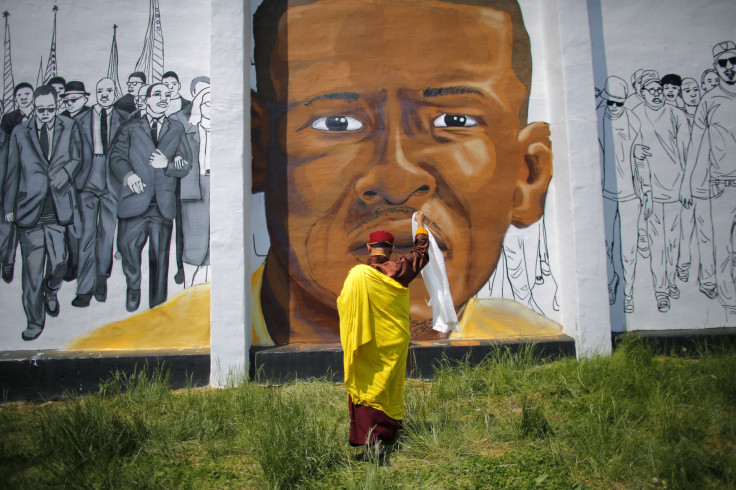Why Is Baltimore Still Protesting? 4 Reasons Police Brutality Demonstrations Continue Over Freddie Gray Case

Residents in Baltimore, a city plagued by violence and community mistrust of the police, have long claimed that the ongoing protests there are about more than Freddie Gray, the 25-year-old who died in police custody last month. Baltimore police Commissioner Anthony Batts on Wednesday said police are struggling to combat West Baltimore violence, in the wake of riots over Gray's death. He said officers are routinely surrounded by dozens of people, who videotape and verbally harass them while they are doing basic police work.
Nonfatal shootings in the neighborhood where Gray was arrested on April 12 are up 175 percent and the area has seen 22 homicides this year, according to police data. Deray McKesson, a community activist and organizer popular on social media, told the Baltimore Sun that Batts was trying to instill fear about a spike in crime and link it to the ongoing protests. "What Batts is worried about is that people are more aware and more willing to hold police accountable in the Western District," McKesson said.
About 50 protesters marched Wednesday night from a housing project in the West Baltimore neighborhood where Gray was arrested to the police union's headquarters several miles away, the Sun reported. "You can't stop crime in a community when the community doesn't trust police," one protester told the Sun. "They need to stop using divisive rhetoric. If you want to protect and serve us, come listen to us."
When Baltimore City state's attorney Marilyn Mosby announced murder and manslaughter charges for the six officers involved in Gray's death last month, some in the community rejoiced. But soon after, statements from leaders in Fraternal Order of Police Lodge 3 blasting protesters as a "lynch mob" and dismissing Mosby's work saw the community-police relationship further strained. Here are four other recent developments that community activists have said are keeping the protests alive:
1. Civil rights leaders in Baltimore took the police union's statements about Mosby as a sign of disrespect for their law enforcement colleague. The Baltimore NAACP chapter blasted the police union for statements questioning Mosby's character, in a letter released earlier this week. "You then decided to defend these six officers by all but attacking our newly elected State’s Attorney, Marilyn Mosby – a young African-American mother of two, whose office thus far has an impeccable record of integrity and transparency... The FOP rhetoric didn’t stop there, however, as you also chose to point to the relationship Mrs. Mosby has to the 7th district councilman, Nick Mosby – her husband," the NAACP's letter states. "You knew of this existing relationship when you supported her candidacy last year by way of your financial contribution."
Baltimore #NAACP letter to Fraternal Order of Police for attack on Attorney Mosby. Read more: http://t.co/e9PElBikhT pic.twitter.com/sRp6H0nj7H
— NAACP (@NAACP) May 19, 20153. As city residents were chastised for looting during the riots, two law enforcement officials were allegedly caught committing the same crime. Two Baltimore corrections officers were captured on video stealing from a 7-Eleven, during the city unrest on April 25, the state Department of Public Safety and Correctional Services confirmed. Both officers have been charged with theft and burglary and were placed on unpaid leave, Salon reported.
4. There still isn't a clearly-articulated plan to end rampant police brutality within the Baltimore Police Department. A Baltimore Sun investigation last year revealed that more than 100 people have won court settlements or judgments totaling $5.7 million in cases claiming that Baltimore police officers abused them. The U.S. Department of Justice has said it hadn't seen enough progress and launched an investigation of the police department on May 8.
© Copyright IBTimes 2024. All rights reserved.












